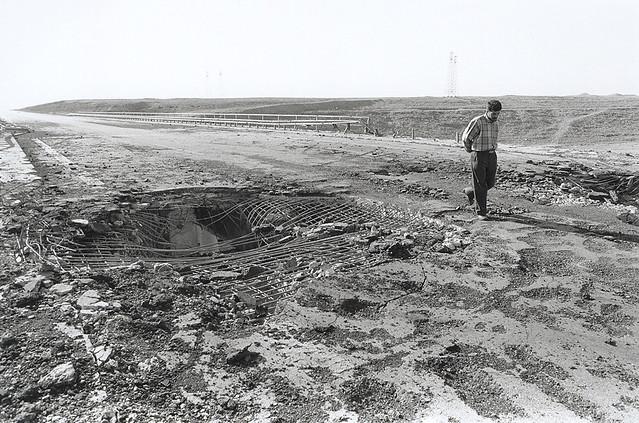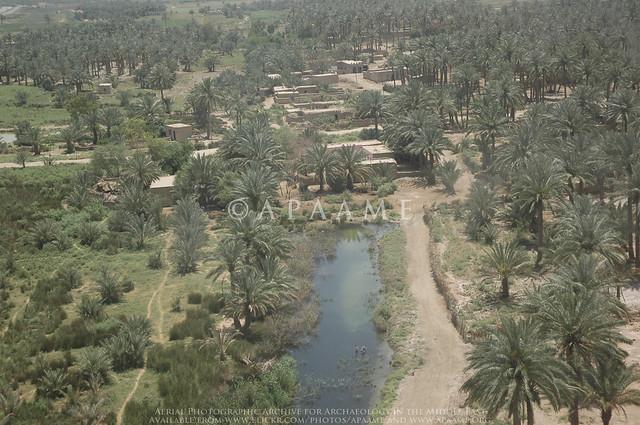



Nasiriyah
Overview
Historical Significance
Nasiriyah, the capital of Dhi Qar Governorate, is a city steeped in history and cultural richness, located in southern Iraq. It is situated near the ancient site of Ur, one of the oldest known cities in the world, which was the birthplace of the biblical figure Abraham. This area is often referred to as the cradle of civilization, where Sumerians thrived thousands of years ago. The remnants of ziggurats, temples, and ancient burial grounds can still be found nearby, offering travelers a glimpse into the early development of urban life and culture in Mesopotamia.
The city itself has witnessed significant historical events, particularly during the 20th century. It played a crucial role during the Iraq War, becoming a center for military operations and humanitarian efforts. This complex history adds layers to Nasiriyah's identity, making it not just a place to visit, but a living testament to Iraq's resilience and rich heritage.
Cultural Atmosphere
The culture of Nasiriyah is a vibrant blend of traditional Iraqi customs and modern influences. The local population is known for their hospitality and friendliness, welcoming visitors with open arms. As you wander through the bustling streets, you'll encounter lively markets (souks) filled with colorful textiles, spices, and handcrafted goods. The aroma of traditional Iraqi dishes wafts through the air, with local specialties such as kebabs, dolma (stuffed grape leaves), and qouzi (roasted lamb) enticing your senses.
Art and music also play an essential role in the daily life of Nasiriyah. Traditional folk music can be heard during local celebrations, often accompanied by lively dance performances that reflect the region's rich artistic heritage. Festivals celebrating religious and cultural events bring the community together, showcasing their unity and pride in their identity.
Local Characteristics
Nasiriyah is characterized by its unique blend of urban and rural life. The city is surrounded by lush farmland and the Tigris River, providing a picturesque backdrop that contrasts with the urban landscape. The riverbanks are popular spots for locals to gather, especially during the evenings, to enjoy the cool breeze and share stories.
One of the city's most notable landmarks is the Al-Shuhada' Bridge, which holds significant importance as a symbol of resistance and resilience. This bridge was the site of protests and demonstrations during various political upheavals, highlighting the city's role in shaping modern Iraqi history. Additionally, the Imam Ali Mosque is a beautiful architectural gem that reflects the spiritual aspect of life in Nasiriyah, drawing both worshippers and curious visitors alike.
Exploring the Surroundings
For those eager to explore beyond the city limits, the nearby archaeological site of Ur is a must-visit. This UNESCO World Heritage site houses the impressive Ziggurat of Ur, a monumental structure that dominated the skyline of ancient Sumer. Visitors can walk through the ruins and imagine the lives of those who once inhabited this thriving metropolis.
The surrounding countryside is equally captivating, with opportunities for eco-tourism and adventure. Nature enthusiasts can explore the marshes of Southern Iraq, known as the Mesopotamian Marshes, a UNESCO-recognized biosphere reserve teeming with wildlife, including migratory birds and unique aquatic plants. These marshlands are a haven for birdwatchers and offer a serene escape from the bustling city life.
In summary, Nasiriyah is a city that encapsulates the essence of Iraq's storied past while embracing its vibrant present. With its rich history, welcoming culture, and stunning natural beauty, it presents a unique destination for travelers seeking to immerse themselves in the heart of Mesopotamia.
Other towns or cities you may like in Iraq
Explore other cities that share similar charm and attractions.






